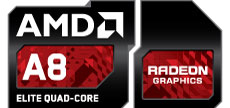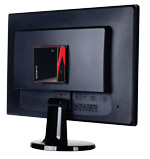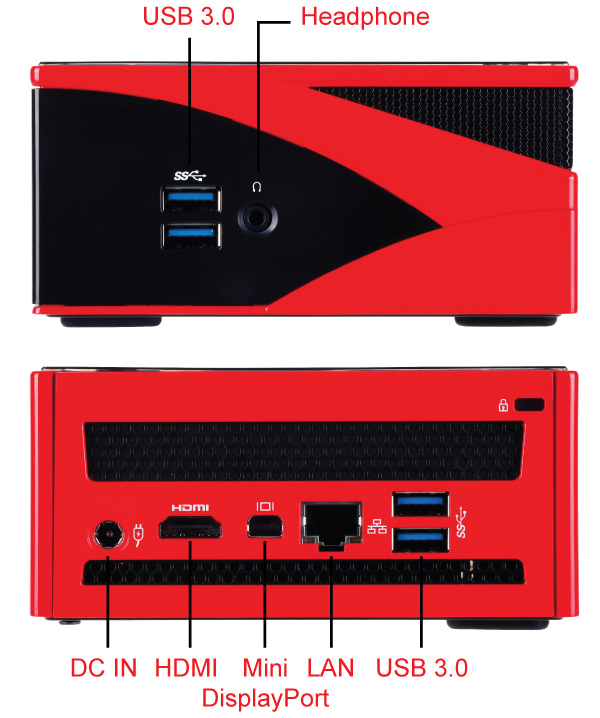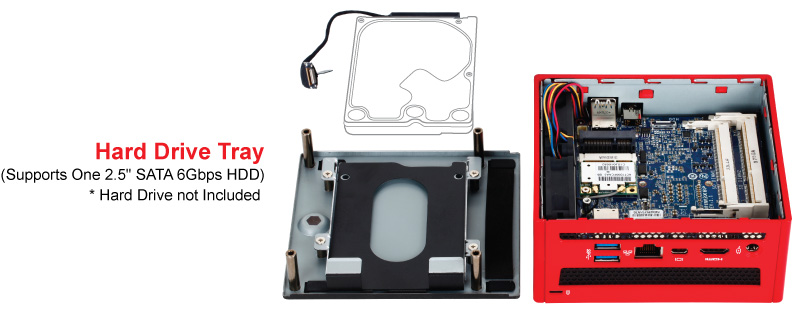Redefining the Desktop PC

Challenging the essence of how we define a desktop PC, GIGABYTE
engineers have developed an ultra compact PC. Ideal for a broad range of
computing applications at home or in the office, the BRIX expounds
sheer simplicity and convenience. With a broad choice of processors
covering the entire performance spectrum, the BRIX sets a new standard
for desktop miniaturization that makes it perfect as a discreet
HTPC/multimedia hub, an ultra-low power PC for the family, an office PC
or as a digital signage unit.
A Flexible, Compact DIY PC Kit
The GIGABYTE BRIX is a DIY PC kit, shipping with a Wi-Fi Mini PCIe
module pre-installed, requiring only SO-DIMM system memory and a choice
of either, or both mSATA SSD or standard 2.5” hard drives. The GIGABYTE
BRIX maintains the DIY PC ethos, giving users the flexibility to
independently choose preferred operating system, integrated storage and
system memory configurations.


USB 3.0 and Network Connectivity
The GIGABYTE BRIX integrates four USB 3.0 ports (two front, two rear),
ensuring ample connectivity for peripherals, storage devices and more.
In addition to including a Gigabit Ethernet port, the GIGABYTE BRIX also
includes a Mini PCIe module offering IEEE 802.11 a/b/g/n/ac Wi-Fi and
the latest Bluetooth 4.0, providing connectivity for low power Bluetooth
devices and peripherals, as well as allowing users to easily connect
their mobile devices.
VESA Support

Bundled with a VESA bracket, the BRIX Gaming can easily be mounted
behind a monitor or HDTV making it discreetly hidden from view. This
offers a simple and elegant way to turn any VESA-compliant display or TV
into a full-featured PC or digital signage unit.



* Zamieszczony materiał został udostępniony jedynie w celach informacyjnych. GIGABYTE zastrzega sobie prawo do wprowadzania zmian w specyfikacji produktu i udostępnionych informacji o produkcie bez wcześniejszego powiadomienia.
* Przedstawiane dane są oparte na maksymalnych teoretycznych wydajnościach przedstawionym przez producentów chipsetów lub organizacji określających zakres tych specyfikacji. Rzeczywista wydajność może się różnić w zależności od konfiguracji systemu.
* Wszystkie znaki towarowe są własnością ich właścicieli.
* Z uwagi na budowę systemu, zakres pamięci może się różnić.
* Przedstawiane dane są oparte na maksymalnych teoretycznych wydajnościach przedstawionym przez producentów chipsetów lub organizacji określających zakres tych specyfikacji. Rzeczywista wydajność może się różnić w zależności od konfiguracji systemu.
* Wszystkie znaki towarowe są własnością ich właścicieli.
* Z uwagi na budowę systemu, zakres pamięci może się różnić.